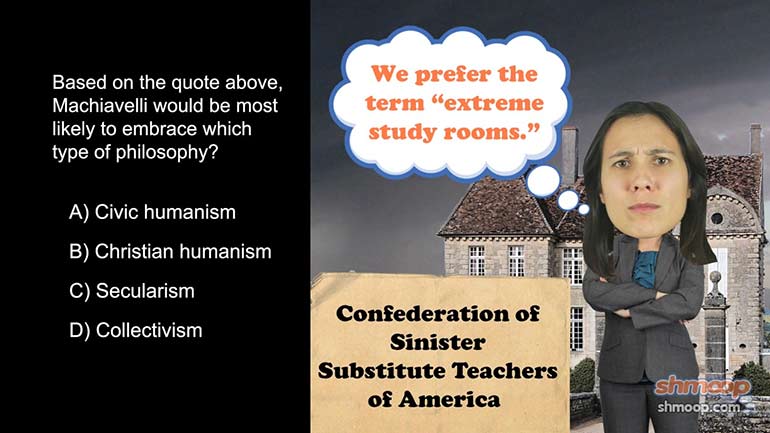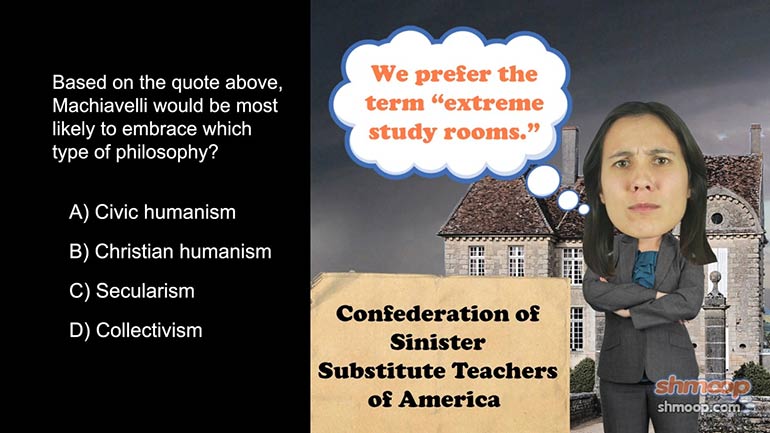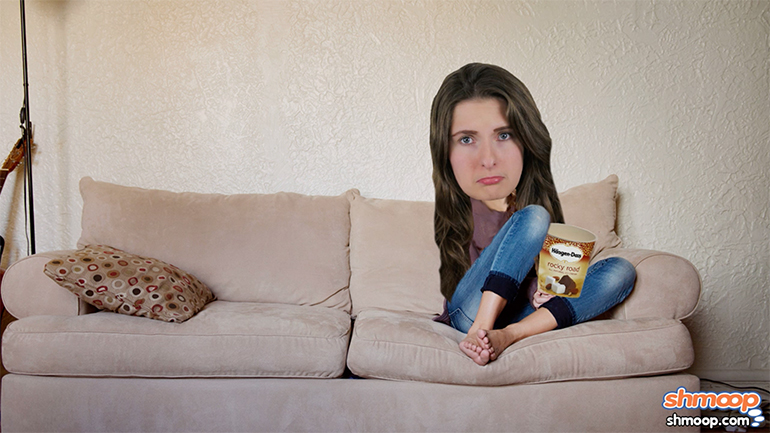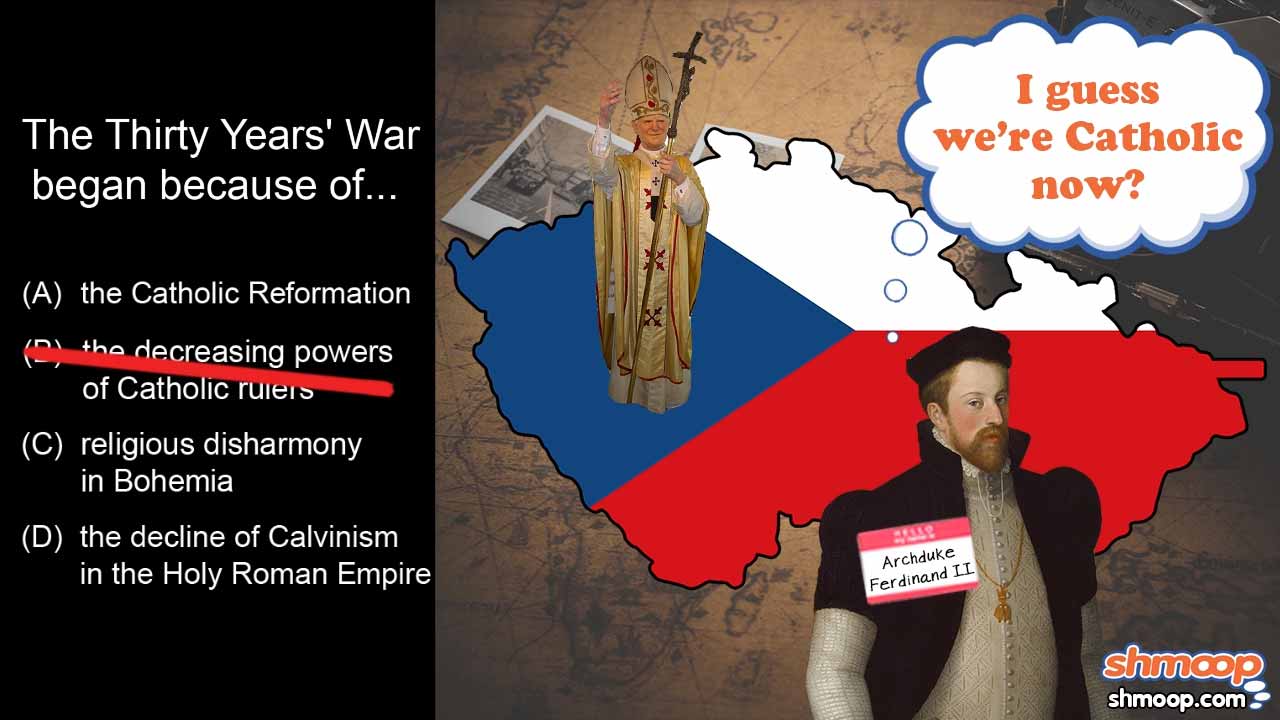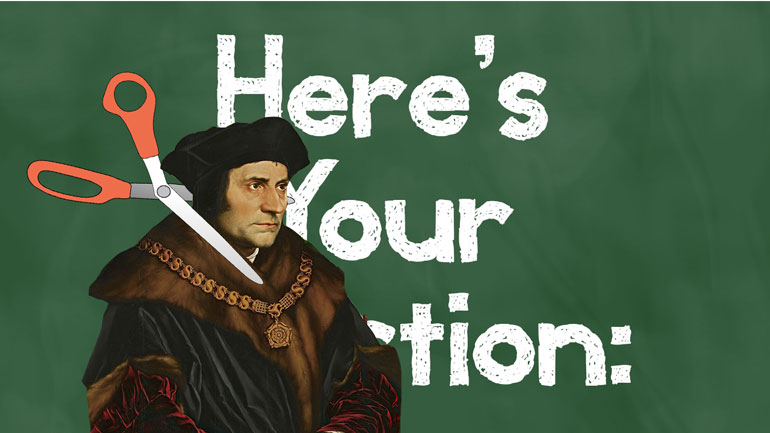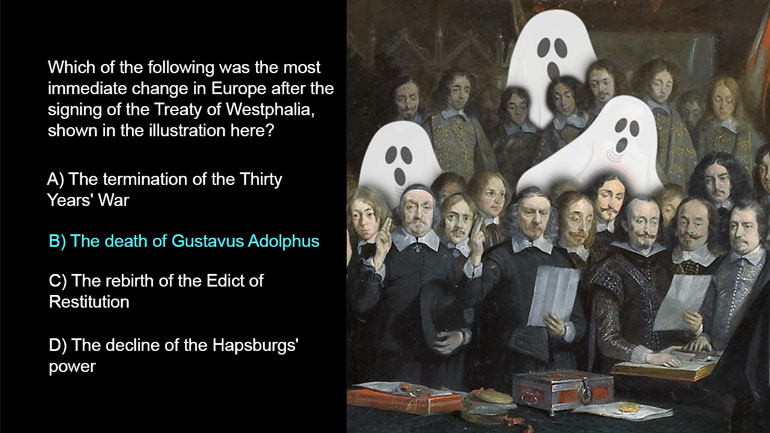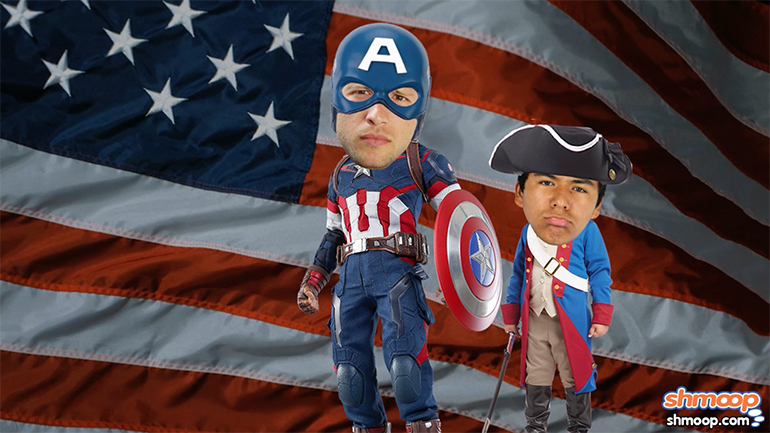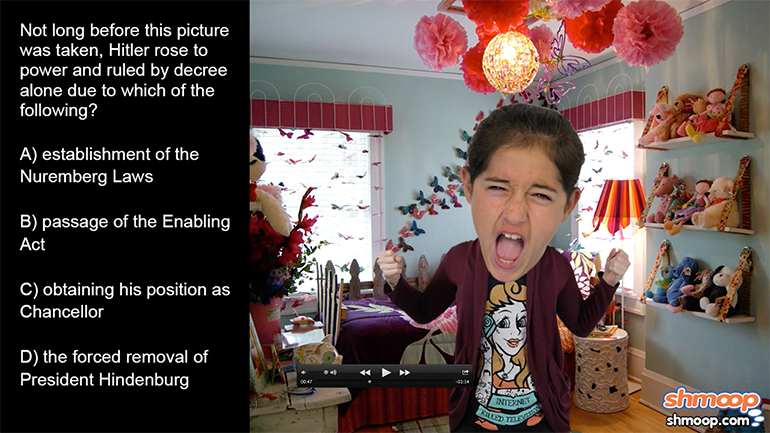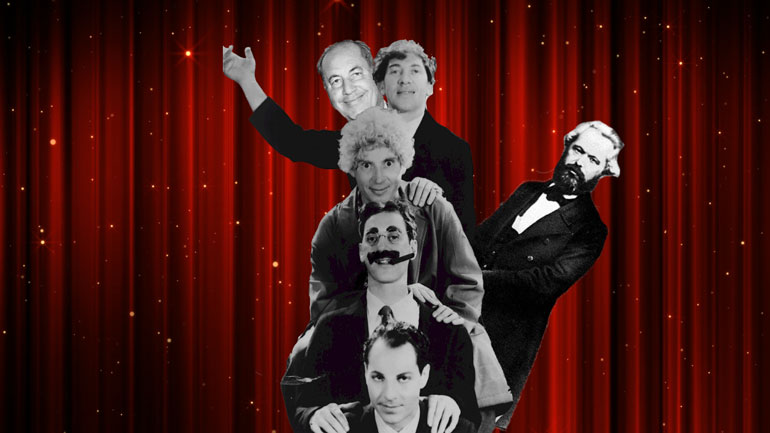ShmoopTube
Where Monty Python meets your 10th grade teacher.
Search Thousands of Shmoop Videos
Period 1: 1450-1648 Videos 10 videos
AP European History Period 1: 1450-1648 Drill 2, Problem 1. As a result of the meeting in the image, which of the following occurred?
AP European History 1.1 Period 1: 1450-1648. Based on the quote, Machiavelli would be most likely to embrace which type of philosophy?
AP European History 1.2 Period 1: 1450-1648. Where would somebody who embraced this philosophy most likely have lived during the Renaissance?
AP European History 2.2 Period 1: 1450-1648 61 Views
Share It!
Description:
AP European History 2.2 Period 1: 1450-1648. The man portrayed in the image was previously motivated to tack the Ninety-five Theses on the door of the castle church of Wittenberg because of which of the following causes?
Transcript
- 00:00
Thank you here's Your smoke du jour brought to you
- 00:05
by indulgences Like when you eat an entire pint of
- 00:09
rocky road ice cream in a single sitting Not that
- 00:12
we've ever done that It's a hypothetical Take a look
- 00:16
at this image in tallinn Von warner Well here's today's
Full Transcript
- 00:20
question The man portrayed in the image above was previously
- 00:23
motivated to attack the ninety five thesis on the door
- 00:27
of the castle church of wittenberg Because of which of
- 00:30
the following causes and hear your potential answers Sacrament expenses
- 00:35
burial All right well luther had ninety five problems but
- 00:39
a sacrament ain't one of them Sorry we couldn't exist
- 00:43
In actuality he only had one real problem Hence the
- 00:46
question Okay so let's figure out what uh which one
- 00:48
It wass with luther motivated by a requirement of sacrament
- 00:52
for penance That is a private confession to a priest
- 00:55
in exchange for absolution Well no he was totally fine
- 00:59
with that one Nor did he take particular issue with
- 01:01
expensive burial fees or even the selling of church offices
- 01:05
both of which he chalked up to being examples of
- 01:07
the way in which the church had become a financial
- 01:09
institution point being he understood the church had to make
- 01:12
money so those two weren't breaking his point That eliminates
- 01:15
be indeed That means that luther's breaking point was c
- 01:18
the selling of indulgences which effectively allowed people to buy
- 01:23
their way into heaven through forgiveness not cool Ever hear
- 01:26
of paying for your sins that's kind of the idea
- 01:29
And while the truth promise that buying indulgences would pardon
- 01:32
people of their sins revenue was in fact being used
- 01:35
to pay the church's deads to bankers and rome for
- 01:37
the building of new churches as all great angsty artists
- 01:40
do luther used his unhappiness as fuel for his writing
- 01:44
soc is the correct answer Ninety five pieces on the
- 01:47
castle door Ninety five pieces on the door Take one
- 01:51
down starting new religion ninety five pieces on the castle 00:01:54.139 --> [endTime] door
Related Videos
AP European History Period 1: 1450-1648 Drill 2, Problem 1. As a result of the meeting in the image, which of the following occurred?
AP European History Period 3: 1815-1914 Drill 2, Period 1, Les Demoiselles d'Avignon represented the beginning of which of the following art m...
AP European History Period 3: 1815-1914 Drill 2, Problem 4. Paintings like the one depicted above were a direct reflection of what?
AP European History 1.2 Period 4: 1914-Present Not long before this picture was taken, Hitler rose to power and ruled by decree alone due to which...
AP European History 1.4 Period 3: 1815-1914. As evidenced through the passage above, Karl Marx was a passionate leader and is considered the father...

